Excavating Royal Jubilee
by Katherine CookThe Royal Jubilee Hospital collection housed at the Royal BC Museum captures a rare glimpse into the dynamic world of 1890s Victoria, from ‘modern’ medical treatments to children’s toys, these are the stories the students from the Department of Anthropology (University of Victoria) researched to showcase the value of historical archaeology in B.C.
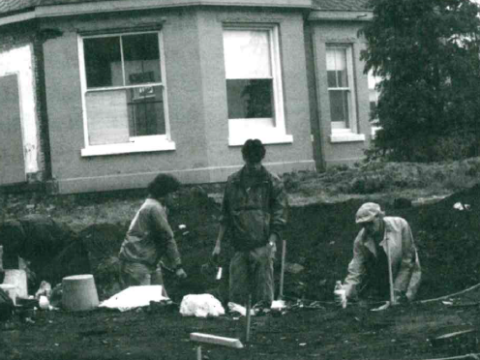
1In 1 playlists
In 1991, construction at Royal Jubilee Hospital uncovered a rubbish heap from when the hospital first opened in the 1890s. A team of archaeologists volunteered to excavate the artifacts, and the collections came to the Royal BC Museum archaeological repository. The artifacts are a critical record of early healthcare and community in Western Canada.
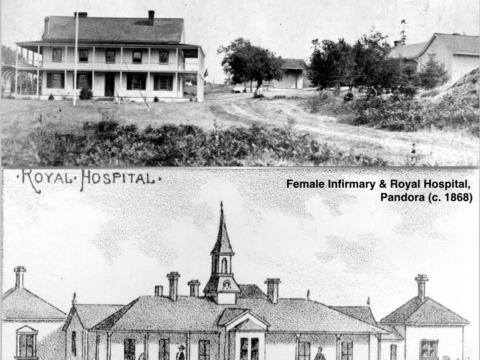
1In 1 playlists
As Victoria grew as a port and a gateway to the gold rush, access to healthcare was desperately needed. Between 1858 and 1868, a series of hospitals were established with this purpose but each time were too small or unequipped to adequately treat the growing populations with advancements in medical science.
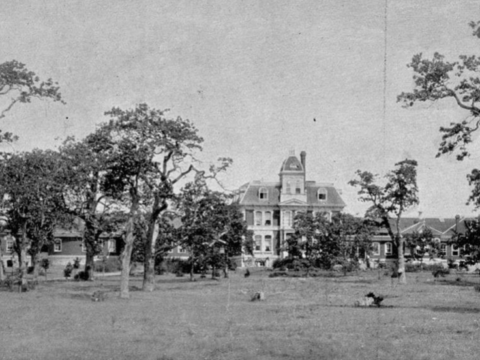
1In 1 playlists
In celebration of Queen Victoria's Jubilee in 1888, many people in Victoria imagined a new hospital as fitting commemoration, and set their sights high on establishing a hospital that would be fit for the most fashionable cities in the British Commonwealth.

1In 1 playlists
In 1891, the Royal Jubilee School of Nursing, the only school west of Winnipeg, opened to train nurses locally and help to staff the hospital. Nurses were critical to the growth of the hospital and were often run off their feet with diverse and intense responsibilities. This video shows what might have been in an 1890s nursing kit.
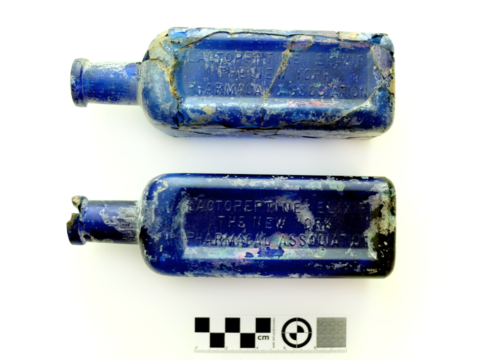
1In 1 playlists
Lactopeptine hit the market in 1877; medical information from the time states that this remedy was commonly used to treat sickness in pregnancy and all other digestive disorders. At this time, it was standard protocol that all medical products would be in distinctly colored or shaped bottles, in order to indicate that medicine was inside.
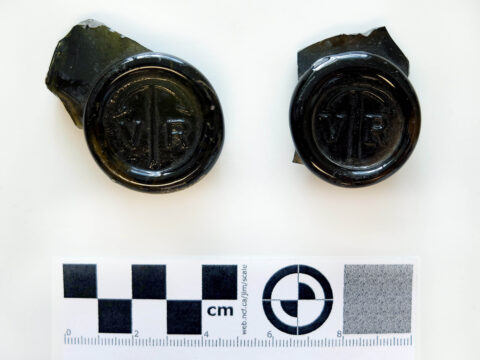
1In 1 playlists
Glass sealed bottles are believed to be some of the earliest marked containers supplied by the British Military. Bottles with glass seals would have contained important materials worthy of the additional costs. The seals had a variety of symbols including: anchors, arrows or the initials of the ruling monarch; VR being Victoria respectively.
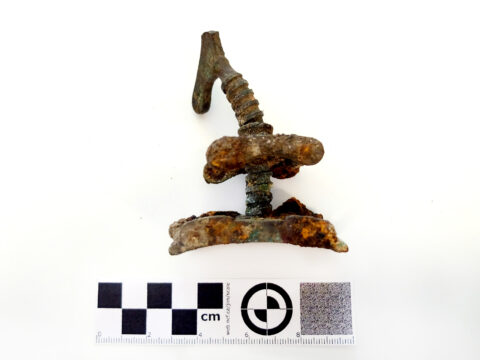
1In 1 playlists
This 19th C tourniquet would have originally been attached to a large strap, which could be tightened around a limb to stem blood flow. In a hospital setting, Petit's tourniquet would have been used during amputations to prevent a patient from bleeding out during surgery.
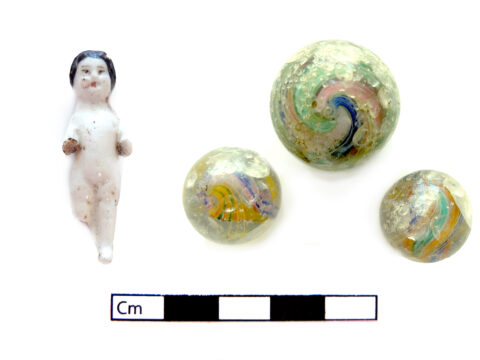
1In 1 playlists
A china doll and selected marbles excavated from the grounds of the Royal Jubilee Hospital. Who would have played with these toys? Find out by listening to the audio clip following this entry.
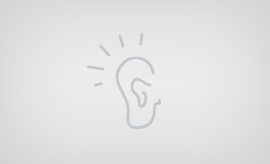
1In 1 playlists
A range of toys were excavated from the Royal Jubilee hospital grounds -- what do the tell us about children in Victoria in the 1890s and their experience of health care?
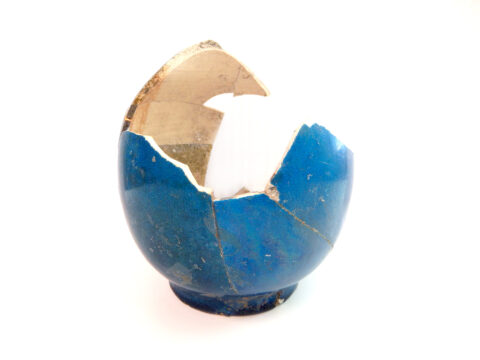
1In 1 playlists
The first Japanese immigrants to land in Victoria quickly formed a vibrant community. Soon after, the shipment of Japanese goods supplied Japanese Bazaars across Victoria. A collection of Japanese ceramics found at Royal Jubilee will shed light on this intriguing story of early Japanese settlement.
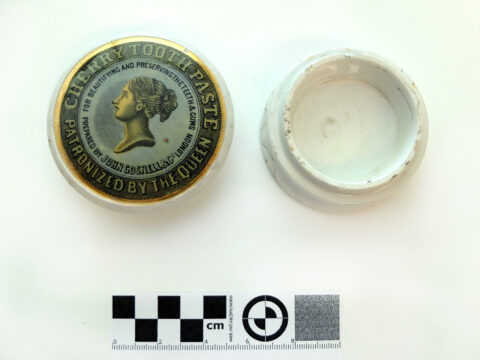
1In 1 playlists
John Gosnell is the oldest cosmetic company in the UK, dating back to 1677. This pot represents one of John Gosnell’s most popular household products: Cherry toothpaste. Though the toothpaste contains no cherry flavouring, the pink colour was appealing to consumers. Royalty was often used as a mechanism to attract buyers as well.
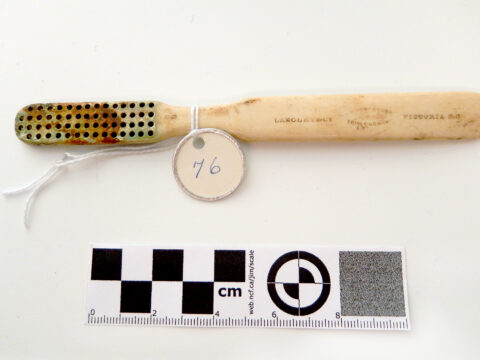
1In 1 playlists
These toothbrushes may have belonged to the nurses that were training there, or they could have been brought there by patients. The tooth brushes are all made of either wood or bone and would have had natural, woven boar or horse hair bristles, as nylon bristles were not invented until the 20th century.
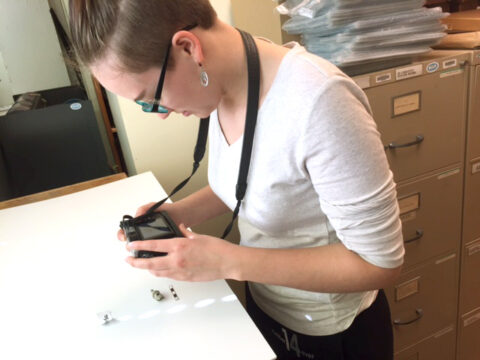
1In 1 playlists
This exhibit was created by Anthropology students from the University of Victoria: Alexa Dagan, Mackenzie Gibson, Anna Heckadon, Carmen Hjermstad, Elisa O'Malley, Darius Pomeroy, and Kanika Varna, with their professor Dr. Katherine Cook, and Genevieve Hill, Grant Keddie and Tom Bown from the RBCM.
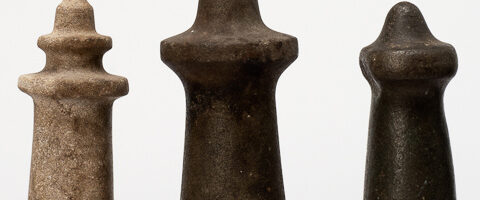
2In 2 playlists
Archaeology tells us that Indigenous people have been here a very long time. Evidence such as artifacts, house remains and animal bones are held in the Royal BC Museum collection.
View Pathway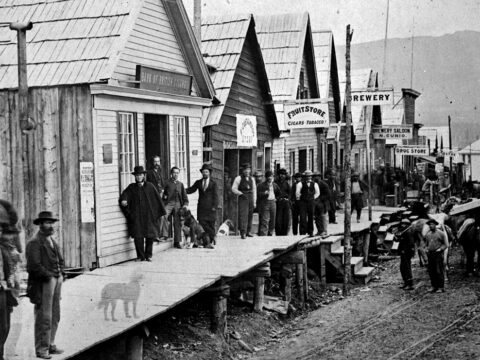
9In 9 playlists
Every picture tells a story, but whose story? How can a single picture tell us a story about what happened long ago? To answer these questions historians have developed some thoughtful ways to read photographs.
View Pathway